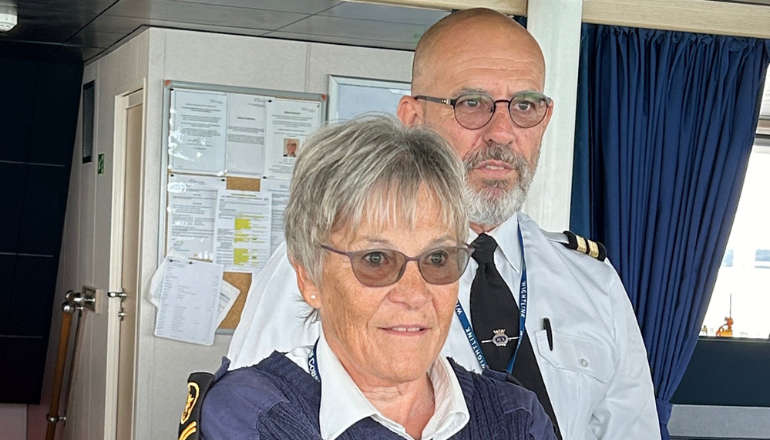Hurricane Milton reduced a US meteorologist with 33 years' experience reporting on hurricanes to tears live on air.
What prompted the moment, said NBC's John Morales afterwards, was atmospheric pressure.
"It's funny how millibars can get a nerd to lose it," he said.
Falling barometric pressure is the best predictor of the growing intensity of a storm.
Hurricane Milton latest updates - tourists stranded
The forecaster had just received an update from US weather services that revealed Milton's pressure had dropped 50 millibars in just 10 hours.
"It just absolutely dropped like a rock," said Mr Morales.
He had never seen a hurricane strengthening that quickly, from a tropical storm to a category five hurricane in not much more than a day.
But it was what was driving that intensification that also contributed to his uncharacteristic loss of composure.
Sea surface temperatures in the Gulf of Mexico are currently around two to three degrees warmer than 20th century averages.
Warm seas energise storms, increased evaporation of moisture from warmer oceans add more water into the storm leading to more rainfall.
Mr Morales blamed a growing sense of "angst" at the fact unchecked global warming was partly to blame for Milton being so exceptional.
The hurricane weakened overnight, but has now re-intensified to a Category 5 storm. It is forecast to weaken to a Category 3 storm just before making landfall in central Florida.
However, the highly unusual track, and colossal size, still make the storm the largest to hit this part of Florida in the history of recorded storms.
Read more on Sky News:
What we know about Hurricane Milton
Evacuations ahead of 'worst storm of the century'
Another key factor is the fact Milton will create a compound disaster - blasting through the damage left by Hurricane Helene that has left detritus across the Florida peninsula.
It will weaponise debris, broken tree limbs, collapsed buildings and rubbish bins, contributing to further damage.
There is uncertainty about what a warming climate means for the number of hurricanes that might develop each year.
But the connection between warming and the power of future storms is now undisputed.

(c) Sky News 2024: Why a meteorologist was reduced to tears describing Hurricane Milton


 Hurricane Milton: Florida braces for storm's landfall with huge evacuation under way
Hurricane Milton: Florida braces for storm's landfall with huge evacuation under way
 TikTok sued by 13 US states for 'harming young people's mental health'
TikTok sued by 13 US states for 'harming young people's mental health'
 Tom Tugendhat knocked out of Tory leadership race - as James Cleverly tops latest vote
Tom Tugendhat knocked out of Tory leadership race - as James Cleverly tops latest vote
 £12bn Thames Water creditor group pitches rescue deal to Ofwat
£12bn Thames Water creditor group pitches rescue deal to Ofwat
 James Cleverly has momentum after latest voting in Tory leadership contest - but final result far from clear
James Cleverly has momentum after latest voting in Tory leadership contest - but final result far from clear



 New Provider Set To Ensure Freshwater NHS Dental Services Continue Following MyDentist Closure
New Provider Set To Ensure Freshwater NHS Dental Services Continue Following MyDentist Closure
 Gosport And Isle Of Wight Maritime Teams Working Together To Improve Safety At Sea
Gosport And Isle Of Wight Maritime Teams Working Together To Improve Safety At Sea
 What The Cluck? Chicken Shop Mooted For Newport Despite Health And Environmental Concerns
What The Cluck? Chicken Shop Mooted For Newport Despite Health And Environmental Concerns
 Abandon Chip: Housing Plans Revealed For Former Cowes Takeaway
Abandon Chip: Housing Plans Revealed For Former Cowes Takeaway